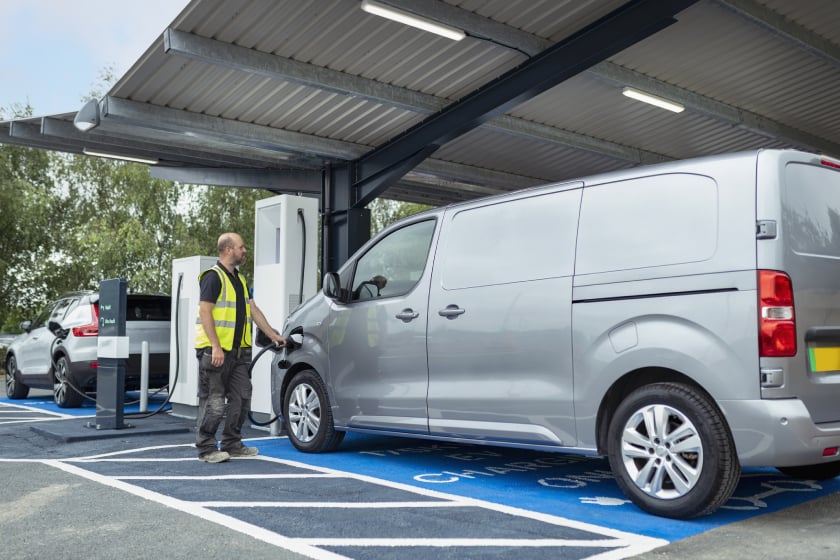HMRC umbrella company ‘checking tool’ looms for workers
Umbrella company consultation response and guidance due from HMRC, as more details come out on Tax Administration and...
READ MORE
After releasing guidance that contradicted legislation on reimbursing employees for the cost of charging company-owned electric cars and vans at home, HMRC recently backtracked. The raft of taxes and benefits for electric vehicles (EVs) is complex. Here’s a quick overview and upcoming changes.

HMRC recently updated its guidance on reimbursing employees for the cost of charging company-owned electric cars and vans at home. When the EV is available for both business and private use, the reimbursement is now not considered a taxable benefit.
In this case, it’s up to the employer to ensure that they are not reimbursing the employee for more than the cost of charging the car.
Reimbursing the costs of charging on a residential electricity account with a standard VAT of 5% may offer a financial benefit for a business that pays 20% VAT on workplace electricity costs – of course the additional administrative burden of managing the expenses may not make that worthwhile.
Vehicle Excise Duty (VED), commonly referred to as ‘road tax’, is not currently payable for electric cars. As announced in the Autumn Statement 2022, though, this is set to change from April 2025.
From April 2025, all new and existing electric cars and vans will be liable for road tax. EVs first registered on or after 1 April 2017 will pay the lowest first-year rate, before moving to the standard annual rate in year two.
Owners of existing EVs will be liable for road tax from the vehicle’s annual renewal date in the 2025–26 FY, rather than from 1 April 2025.
This change is forecast to add £515 million to the public purse in 2025–26, £985 million in 2026–27 and £1,595 million in 2027–28, but no word yet on the expected impact of the delayed ban on sales of new internal combustion engine cars on these figures.
EVs with a current list price of £40,000+ will also be subject to Expensive Car Supplement from 2025, with the removal of their exemption.
Until 24 December 2025, EV owners can avoid London’s £15 daily Congestion Charge – there's currently no Congestion Charge from Christmas Day to the New Year’s Day holiday, which will buy users an extra week if that’s still the case come 2025.
Owners must apply for the cleaner vehicle discount, providing vehicle registration documents that list the fuel type as ‘battery electric’ or ‘hydrogen fuel cell’. Registering for the discount and renewing the registration each year costs £10.
Businesses buying new EVs or charging points for use by the business and employees can claim 100% first year capital allowances for the purchase cost of the vehicles and the charging equipment.
Under the Workplace Charging Scheme (WCS), businesses can apply for grants to help them purchase and install EV chargers in workplace carparks.
As of July 2023, WCS grants totalling £17.2 million had funded the installation of more than 46,000 charging sockets, with uptake highest in the South East. Per capita, London had the lowest uptake (34 per 100,000 people), followed by Northern Ireland (45), Scotland (53) and Wales (56).
To apply for a grant, find the form here.
Read next: When Rishi Sunak announced a five-year delay of the ban on the sale of internal combustion engine cars, the obvious loser was the environment. But experts warn that consumers and the automotive industry will both feel the impact. Read the full story: EV delays put the industry in reverse